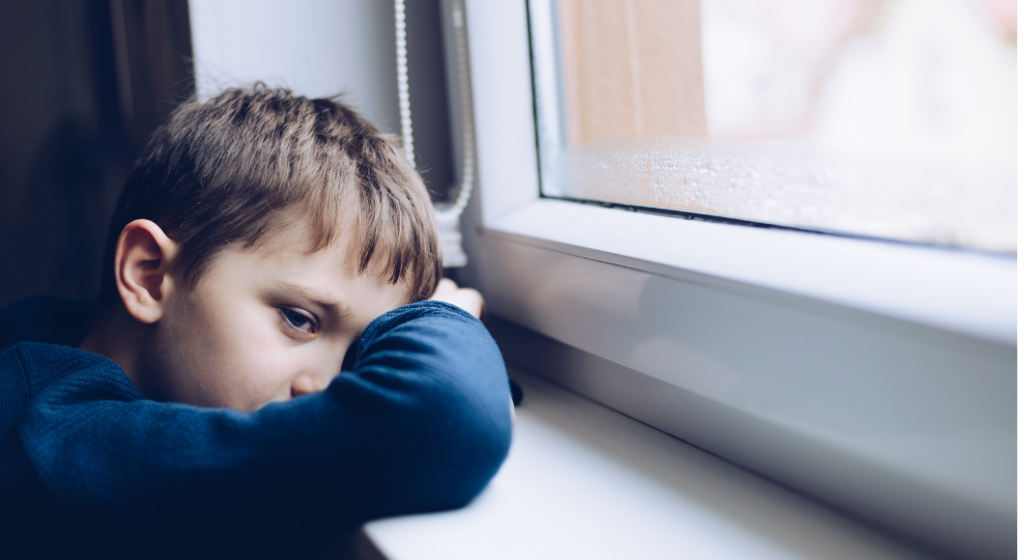 This year has been the year of unexpected twists, turns, and chaos. Every month seems to bring a new challenge to add to the long list of reasons we are all done with 2020 and ready to close this chapter.
This year has been the year of unexpected twists, turns, and chaos. Every month seems to bring a new challenge to add to the long list of reasons we are all done with 2020 and ready to close this chapter.
Every morning I try my best to avoid the news at all costs because it can be so draining, and just plain terrifying at times. Whether it be lasting affects of this deadly virus, wildfires, thousands of people unemployed, or a looming education crisis we have all seen and heard about it this year.
However there is one topic that has been constantly on my mind, yet rarely talked about. And that is how this year is affecting our children’s mental health. We know the toll 2020 has taken on moms and adults in general, but what about our children? They may not always communicate or have the ability to verbalize what they are feeling as it pertains to the pandemic, but we all know this virus has stolen so much from them too. From not being able to attend school, to not socializing with friends, canceled birthday parties, trips, losing critical services, and parents who are stressed and in survival mode.
Children see and feel it all, maybe even more so then we realize. Isolation can have devastating affects on children, yet unfortunately we may not know the full extent of these effects for years to come.
Acknowledging that our children are struggling is healthy, and will help catapult us to band together and try our best to help them through this year while learning to thrive again.
While there is still so much uncertainty about what the future may hold, or when things will return to “normal,” it is important to communicate these things to our children and keep them informed, without causing too much fear or anxiety. We want them to feel safe and comfortable coming to us and expressing their feelings and emotions and not holding them inside. Teaching children to suppress their feelings can be very detrimental and have life long consequences.
I have found that I need to make a conscious effort to focus on the positives, no matter how small they may seem, and hope my children will as well.
Here are five tips to help your children navigate this difficult time.
1. Get outside and play!
Vitamin D is shown to have numerous health benefits, including improving mood. Fall is the perfect time to commit to spending more time outside doing things your children love. You could go hiking, biking, or playing sports. Our neighborhood is filled with kids on bikes and scooters, and my kids understand its possible to practice social distancing while having fun riding bikes.
2. Learn a new hobby with your kids
I have always wanted to learn to sew but had not given it much thought the past few years. Then my daughter told me she wanted to learn how to make doll clothes. So, I decided to try sewing with her. I discovered there are hundreds of “learn to sew” kits for kids, and ordered one right away.
We put on music and slowly but surely sewed a felt mermaid with a dress. It wasn’t easy, but we did it together, and I will never forget the joy on my daughter’s face when we completed the challenge. The best part was we spent quality time together. Our next challenge will be making a scrapbook of our summer pictures so we can look back years from now and remember the highlights of this unconventional summer.
3. Set up Zoom play dates
Zoom has changed the way I socialize while social distancing. I Zoom every week with friends from all over the country as a form of self care. I started setting up “Zoom play dates” for my kids as a way for them to socialize as well. They love showing their friends new toys and virtually playing. I have seen an improvement in my daughter’s mood after seeing her friends, and it helps her to get a sense of normalcy during this time.
4. Listen to music!
When your kids are feeling down, find a song that speaks to those feelings and listen together. Music can spark meaningful conversations and help children work through those tough feelings. Classical music can also be soothing for very young children who may be upset but cant yet communicate their feelings and needs.
5. Talk to a professional
If you feel like your child is in need of more help then you can personally provide them, contact a professional counselor. Whether it be in person or from the comfort of your own home utilizing virtual visits, everyone can benefit from counseling or therapy. It’s important to find a provider that your child trusts and connects with. Therapy can help lead our children down a beautiful path to happiness.














